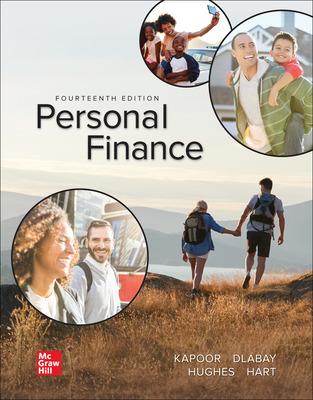While a written budget provides a tangible experience, many people use apps to guide their spending. In
Question:
While a written budget provides a tangible experience, many people use apps to guide their spending. In recent years, the most popular budget apps included YNAB, Mint, Personal Capital, EveryDollar, and Zeta. Some apps emphasize investing, while others help couples coordinate money management activities.
In addition to planning and monitoring spending, other features offered in budgeting apps include:
- Coordination of financial activities, such as account balances, bill tracking, and net worth.
- Financial advice and a visual summary of progress toward suggested financial goals.
- Detailed information on spending; accounting for every dollar (zero-based budgeting).
- Spending reminders with an option to adjust amounts among categories.
- Avoiding paycheck-to-paycheck living by only spending “aged”
- money (at least 30 days old).
- The ability to split transactions when out to eat, and to enter cash payment transactions.
An evaluation of budgeting apps will likely include the cost (some are free). This assessment might also consider the presence of ads for financial products appropriate to your personal situation, privacy controls, and security measures.
Action items:
1. (a) Locate online reviews for budget apps.
(b) Talk to several people about their experiences with budget apps. What benefits and concerns are associated with these apps?
2. Prepare a summary response for a budget app review that might be posted online to guide others when using a budgeting app.
Step by Step Answer:

Personal Finance
ISBN: 9781264101597
14th Edition
Authors: Jack Kapoor, Les Dlabay, Robert Hughes, Melissa Hart





